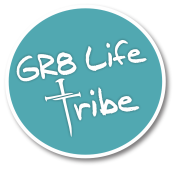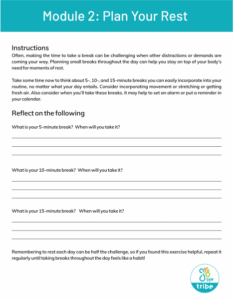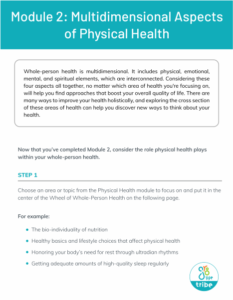
MODULE 2
Try It Out
Now that you’ve went through the module of physical health, it’s time to reflect on what you’ve learned and how you’ll put it into practice in your life!
Make Sense of Your Physical Health Journey
Here we summarize what you’ve learned and help you reflect on how you might apply it to your own life.
Apply What You’ve Learned
Use the following activities to put what you’ve learned about physical health into practice. These activities are valuable exercises to support your personal growth. Choose an activity to get started.




